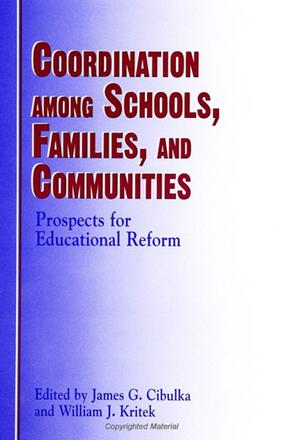
Coordination Among Schools, Families, and Communities
Prospects for Educational Reform
Alternative formats available from:
Addresses a relatively new emphasis in the educational reform movement, the attempt to improve linkages between schools, families, and communities in the delivery of support services to children.
Description
Improving the connection among schools, families, and communities has emerged as a recent focus of the education reform movement posing many challenges for educators, social service professionals, community activists, and parents. This book provides information on the diverse goals of the coordinated services movement and the problems of reconciling competing goals within the movement. The political environment surrounding coordinated services reforms is discussed, including efforts to scale-back the scope of "the welfare state. "
Different models of coordination are presented, such as Kentucky's Family Resource Centers, the Nation of Tomorrow project in Chicago, a community-school coalition in Philadelphia, community youth organizations, and programs for the homeless as well as organizational and management issues surrounding coordination drawn from programs throughout the United States and Canada.
James G. Cibulka is Professor and Chair of the Department of Education, Policy, Planning, and Administration at the University of Maryland. He is co-author of The Politics of Urban Education in the United States, and is editor of Educational Administration Quarterly. William J. Kritek is Associate Professor and Chair of the Department of Administrative Leadership at the University of Wisconsin-Milwaukee and is Senior Associate Editor of Educational Administration Quarterly.
Reviews
"This book helps us think about what might properly constitute a democratic school mission. It illustrates the potential for school constituents to play a larger role in shaping policy and practice. It presents coordinated services as a way to alter the institutional politics of schooling.
"Given the growing numbers of people working in the service sector, the resources directed at this area, and the calls for greater efficiency throughout social services, all in the midst of increasing social problems, I think professionals in diverse occupations will find this work illuminating. " -- Kathleen Densmore, San Jose State University